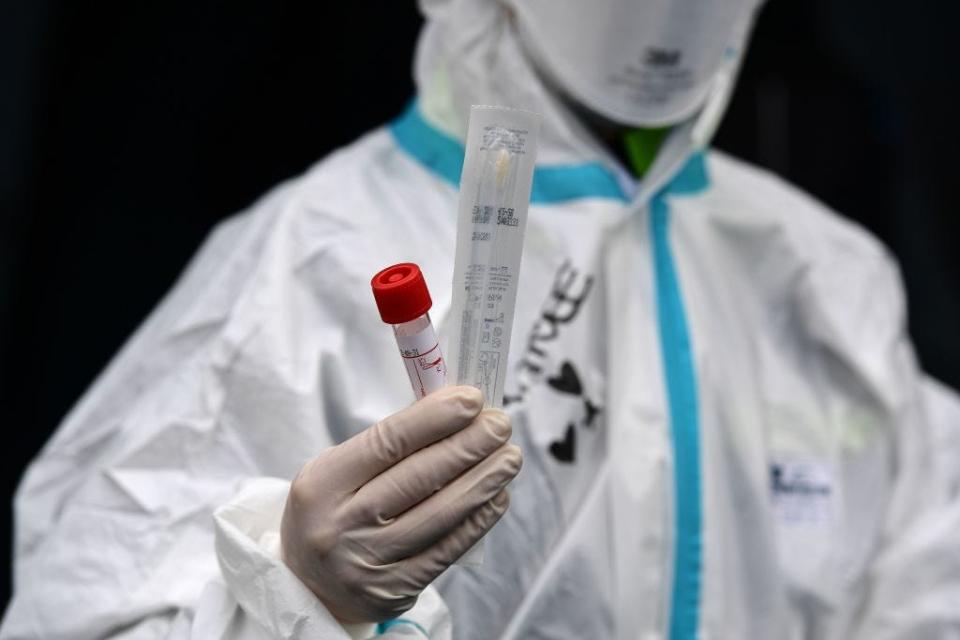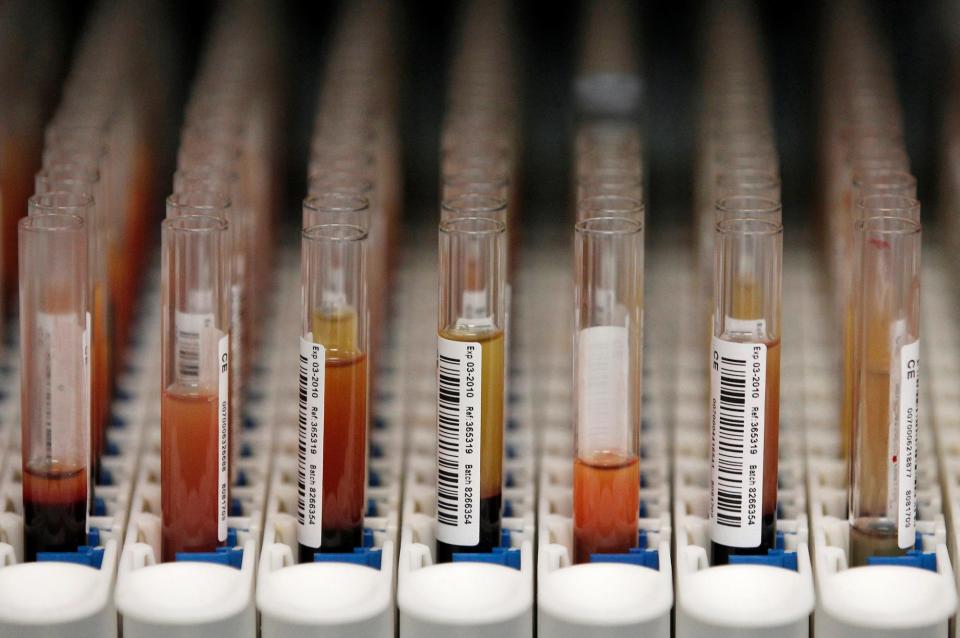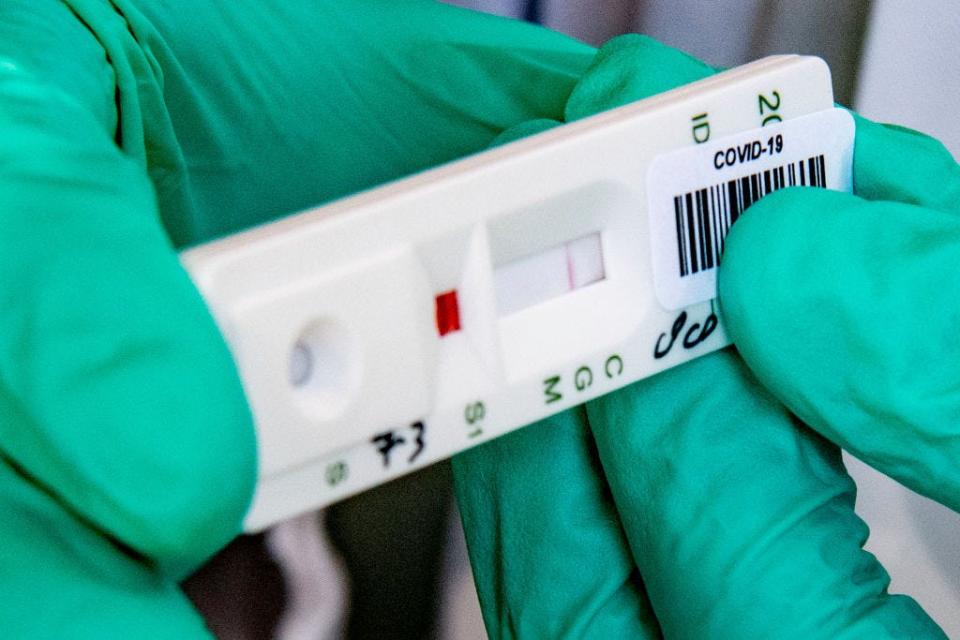Early research suggests people with Type O blood are slightly less likely to get the coronavirus
Reuters/Chor Sokunthea
Early research has found a possible link between people's blood type and their coronavirus risk.
Several preliminary studies found that people with Type O blood had a lower risk of getting the coronavirus or were less likely to develop a severe infection if they did get it.
But that link is tenuous and shouldn't be used to judge a patient's risk. "No one should think they're protected," one expert said.
Research is split on which blood types are associated with higher risk of coronavirus infection.
A handful of early studies have found that people with Type O blood may have a slight advantage during this pandemic.
Research published over the weekend found that patients with Type O were less likely to test positive for COVID-19 than patients with types A, B, or AB.
An April study found a similar trend: The research (though yet to be peer-reviewed) analyzed 1,559 coronavirus patients in New York City and found that a lower proportion had Type O blood.
Other research has reported a link between patients' blood type and the severity of their infections, but these two studies did not. Overall, the jury is still out on whether your blood type affects your coronavirus risk in any significant way.
"No one should think they're protected," Nicholas Tatonetti, the lead author of the April study, told The New York Times.
Type O associated 'with a lower risk of testing positive'
The newest study on blood types examined nearly 1,300 coronavirus patients admitted to five hospitals in Massachusetts in March and April. The results showed that Type O blood "was associated with a lower risk of testing positive," the researchers said, while types B and AB came with a higher risk. Type A blood had no link to a patient's chance of a positive diagnosis.

Miguel Medina/AFP via Getty
The research aligns with previous findings.
In March, a study of 2,173 coronavirus patients at three hospitals in the Chinese cities of Wuhan and Shenzhen also found that people with Type O blood had a lower risk of infection.
A study published last month in the New England Journal of Medicine found an even more substantive link: Patients in Italy and Spain with Type O blood had a 50% reduced risk of severe infection (cases requiring ventilation or supplemental oxygen) compared with patients with other blood types.
More specifically, the study authors found that a region of the participants' genomes that helps code for blood type was linked to a patient's chances of developing severe symptoms.
Research is split on whether any blood types are associated with higher risk

Phil Noble/Reuters
O is the most common blood type. About 48% of Americans have Type O blood, according to the Oklahoma Blood Institute.
In general, your blood type depends on the presence or absence of proteins called A and B antigens on the surface of red blood cells. People with O blood have neither antigen. This genetic trait is inherited from our parents.
The New England Journal of Medicine study found that people with A antigens were 50% more likely to develop severe COVID-19 symptoms like respiratory failure.
Research into whether people with Type A blood face a higher risk of getting infected in the first place doesn't paint a clear picture, however.
The study in China found that patients with Type A blood were at higher risk for infection compared with people with other blood types. The April research also found that a higher proportion of infected patients studied had Type A blood. But the new study found that people with types B and AB had "higher odds of testing positive."

Robin Utretcht/SOPA Images/LightRocket via Getty Images
Most researchers agree that it's too early to tell whether there's a strong link between blood type and infection risk.
Dr. Eric Topol, the director of the Scripps Research Translational Institute, told the Associated Press last month that the evidence was "tentative" and that "it isn't enough of a signal to be sure."
The link is so tenuous, in fact, that blood type shouldn't be one of the factors you use to assess your risk, experts say.
"I wouldn't even bring it up," Anahita Dua, a coauthor of the new study, told The New York Times.
Read the original article on Business Insider


